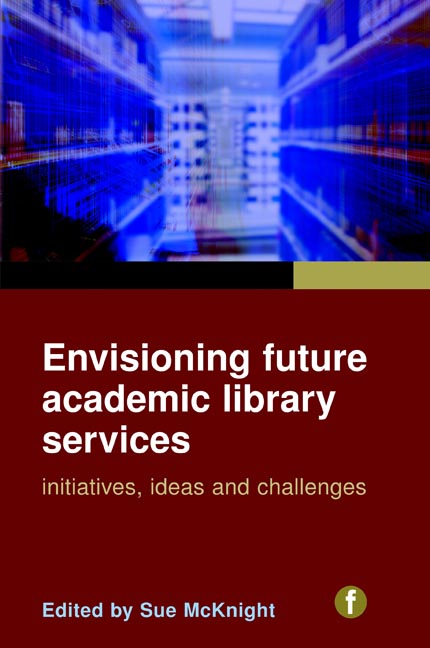Book contents
- Frontmatter
- Contents
- Foreword
- Contributors
- Introduction: We create the future!
- 1 Waiting for the barbarians: seeking solutions or awaiting answers?
- 2 The delete generation: how citizen-created content is transforming libraries
- 3 Libraries as places: challenges for the future
- 4 Web 2.0: redefining and extending the service commitment of the academic library
- 5 Second Life and libraries: boom or bust?
- 6 Some new business ideas in the HSS publishing space: what may librarians expect?
- 7 Loosely joined: the discovery and consumption of scholarly content in the digital era
- 8 Knowledge management, universities and libraries
- 9 Libraries and the management of research data
- 10 The leadership of the future
- 11 Adding value to learning and teaching
- 12 In search of the road ahead: the future of academic libraries in China
- Index
4 - Web 2.0: redefining and extending the service commitment of the academic library
Published online by Cambridge University Press: 08 June 2018
- Frontmatter
- Contents
- Foreword
- Contributors
- Introduction: We create the future!
- 1 Waiting for the barbarians: seeking solutions or awaiting answers?
- 2 The delete generation: how citizen-created content is transforming libraries
- 3 Libraries as places: challenges for the future
- 4 Web 2.0: redefining and extending the service commitment of the academic library
- 5 Second Life and libraries: boom or bust?
- 6 Some new business ideas in the HSS publishing space: what may librarians expect?
- 7 Loosely joined: the discovery and consumption of scholarly content in the digital era
- 8 Knowledge management, universities and libraries
- 9 Libraries and the management of research data
- 10 The leadership of the future
- 11 Adding value to learning and teaching
- 12 In search of the road ahead: the future of academic libraries in China
- Index
Summary
Introduction
Web 2.0 advances the capacity for communication, collaboration, and contribution. By promoting social interaction and content exchange, Web 2.0 responds to ‘human’ objectives. People want to be successful. They want things to turn out well, and to achieve their personal goals. People want to be happy. They care about their well-being and contentment. People want to be productive, achieving results and realizing benefits. People want progress, a sense of betterment and forward movement. People want relationships, satisfying personal connections and attachments. People want experiences, sometimes as observers and sometimes as participants. People want to have impact, to influence events and people, and to have a significant effect. How can academic libraries tap into these ‘human’ interests and build more responsive and effective service programmes?
Web 2.0 and library users
Web 2.0 advances the focus on the interests of users and the expectations they bring to service environments that are increasingly dependent on digital and network technologies and tools. Users seek customization and personalization, the ability to shape content and applications to their personal interests and styles. They want enhanced openness, a free flow and exchange of information and ideas, without barriers. They seek a self-service capability to control and act on their needs, with minimal intervention by others. They embrace the reality of mutability, of constant change and hybrid approaches and styles. They see the value of collective intelligence and the need to question traditional sources of authority and prerogative. They increasingly understand software not as a product, but as a service, a capability shaped by many for the benefit of all. How can academic libraries leverage these new requirements and embrace the user more actively and iteratively in service conceptualization, development and delivery?
Web 2.0 highlights the shifting requirements that users bring to the technologies that are so integral to their personal and professional lives. Clearly, users want more and better content and access. They want convenience and new capabilities, to do things they never were able to do before. They seek high levels of participation and control over the information and service settings where they work and share. And they expect enhanced levels of individual and group productivity, to get more done with lower and even no cost. Web 2.0 should mean rapid technology development and deployment, never really finalized and always a work in progress. It means perpetual assessment, constantly evaluating and reshaping.
- Type
- Chapter
- Information
- Envisioning Future Academic Library ServicesInitiatives, ideas and challenges, pp. 55 - 68Publisher: FacetPrint publication year: 2010



